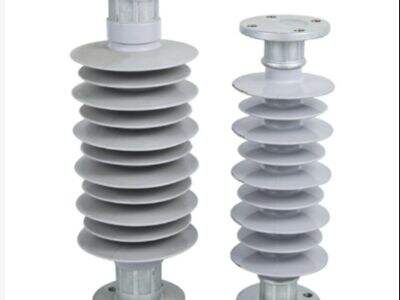Hello, friends! When searching for assistance on choosing the right Semi finished insulator and composite polymeric insulator, you have landed at the right place. First, let us understand what composite polymeric insulators are and what particular work they perform.
Composite polymeric insulator (CPI) is one of essential components in electrical power equipment and systems. They consist of durable materials that prevent electricity from moving to places it shouldn't be. For comparison, think of them like a bubble that nicely wraps around electricity. This matters a lot for safety and well-functioning. And that is the reason why these insulators are preferred for many electrical power requirements.
Materials for Comparison Among Insulators
Having understood what composite polymeric insulators are now, let us discuss the advantages and disadvantages of the same. Different classes of insulators are available like glass, porcelain, and composite polymeric. And each one of these materials has characteristics unique to it. How are you supposed to tell what separate them from one another and which is your ideal match?
Every insulator has its own drawbacks and advantages. Some may be more suitable for particular types of jobs than others. One universal answer for polymeric insulating includes composite polymeric insulators which are great as they have relatively less weight, thus easy handling. They are extremely durable and don’t break easily, so they can last for years on end.
Porcelain insulators, by contrast, are heavier and therefore a little more difficult to handle. And most importantly they tend to be brittle, which means it might shatter if you drop or hit it hard. Cold and hot temperatures can cause cracking and glass insulators may look nice but are also a potential hazard as well. That said, this doesn't make them ideal for all-gig scenarios. As for best insulator, it comes down to what you actually need for your particular electrical job or application.
Step 2 — Select the Appropriate Size and Style
Now on to choosing the correct size and build for your specified needs. The first one should be considered when choosing the size of an insulator as it determines how much charge will pass through the insulator. For higher voltages we may need larger insulators to function with safe.
The make of the insulator can be just as crucial. There are plenty of types and sizes of Composite Post Insulator based upon voltage/current capacity. This size and design is critical to avoid problems known as flashovers. Flashovers are interruptions of the electric current that may harm electrical tools and can be extremely hazardous for humans. Lesser-known but dangerous situations can be avoided based on the selection of the right insulator.
Quality Assurance by Checking Manufacturers
Now that the sizing and styling portions are down, where do you find insulators like these? If you are searching for decent composite polymeric insulators, you should consider the quality and reliability of the manufacturer that produces them. This is a crucial step, as you want to ensure that you're purchasing the best product you can find.
Look for an experienced, quality manufacturer. It is also best to ensure their products comply with critical safety regulations and quality control tests. This should make you more confident that you are indeed making a good decision.
THIM manufactures and supplies wide range of composite polymeric insulators from low voltage to high voltage applications. We test our insulators to ensure that they conform to international safety and quality standards. We do this to ensure our customers only receive top of the line products that are going to keep their electrical systems safe and reliable.
Maintenance of Insulators
Last but not least, maintenance. Well-maintained composite polymeric insulators can provide long service life and reliable performance for many years. They will continue to perform the way they should but care is essential.
There are care instructions that the manufacturer will give you on how to keep your insulators pristine. Which includes cleaning, inspecting for any failures and replacing worn insulators. These steps will prevent any damage to electrical tools and will keep everything working fine as well as safely.
So friends finally, the selection of specific composite polymeric insulators can be based on some good quality features, an easy comparison of pros and cons for different kinds of insulators used across various applications, optimum design and size that suits best to application, manufacturing quality offered by third-party manufacturers with a preventive maintenance approach to gain a long life cycle.
We at THIM hope that this information helps you make an informed decision when choosing the right Pin Insulator and composite polymeric insulator for your electrical systems! By learning these major aspects, you will be able to secure everything in working condition.














































